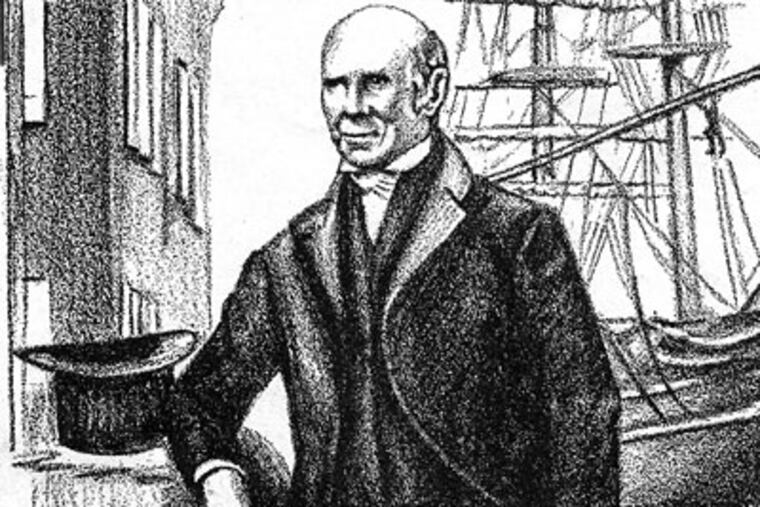Raising the profile of Phila.'s Girard
As the title of the new film says: "Stephen Girard: A Philadelphia Legacy." Girard (1750-1831) was the fourth-wealthiest man in American history. He saved the nation from bankruptcy during the War of 1812. He was instrumental in the development and expansion of Philadelphia's port.

As the title of the new film says: "Stephen Girard: A Philadelphia Legacy."
Girard (1750-1831) was the fourth-wealthiest man in American history. He saved the nation from bankruptcy during the War of 1812. He was instrumental in the development and expansion of Philadelphia's port.
And, with the millions Girard left in his estate, he created a true Philadelphia institution: Girard College. Established in 1831 and opened on the first day of 1848, the boarding school was conceived by the French-born naturalized American as a place for poor, fatherless white boys to get an education.
It would be 120 years, in the wake of mid-1960s protests led by the NAACP and Cecil B. Moore - and a speech by the Rev. Dr. Martin Luther King Jr. ("Now is the time to straighten up Girard College!") - before the school was opened to African Americans.
All of this, and much more, can be gleaned from "Stephen Girard: A Philadelphia Legacy," an 18-minute chronicle of this remarkable man's remarkable story. Produced by Philadelphia politician-turned-filmmaker Sam Katz with his partner (and son) Phil Katz, the film premieres Tuesday night during an invitation-only fete at the Independence Seaport Museum. It will be available for viewing on Girard's YouTube channel (www.youtube.com/user/girardwebsite) later this month.
"It's not a fund-raising event," says Katz about the premiere. "It's really an awareness-raising event. In some ways, it's Stephen Girard's coming-out party. . . .
"Girard College is named for a guy that nobody knows anything about. But he was probably in the lineage of Benjamin Franklin in terms of his impact on our city."
Produced by Katz's History Making Productions, "Stephen Girard" intercuts talking-head interviews (former Gov. Ed Rendell, Comcast executive vice president David L. Cohen, Avenging the Ancestors Coalition founder Michael Coard, restaurateur Georges Perrier, historians, academics, and others) with reenactments of the meetings between an aged and infirm Girard (Kenneth McGreggor) and his attorney, William Duane (Brain Gallagher), as they hash out the details of Girard's will.
In the film, Owen Gowens, one of the four African Americans admitted to Girard in September 1968, recalls the desegregation rallies that eventually led to the opening of the school to thousands of black students.
And Autumn Graves, Girard College's current president - the first woman and first African American to hold the position - reflects on its founder's wishes that the school be for orphaned whites males, exclusively. Girard, as the film notes, was a slave owner.
"It remains unacceptable," she says to the camera. "But there was no legal precedent at the time to have a racially integrated school. Had Girard wanted to have a diverse school, the irony is the school would have never opened."
Today, Girard admits students without regard to race, gender, religion, or national origin. Its first female student gained entry in 1984, and 163 years after it opened, the student body of 475 is almost evenly divided between boys and girls. It is about 80 percent African American.
The film, then, strives to put the school's namesake back in his rightful place in the city's pantheon of great figures, recognizing his achievements, and, at the same time, acknowledging his flaws.
"You can be an amazing person," says Katz, "and still have your faults."